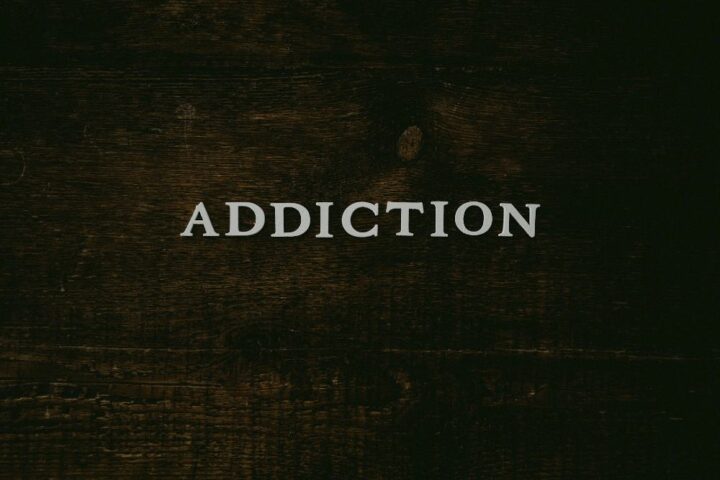Whole-Person Recovery: A New Perspective on Beating Addiction
Addiction, the ever-looming shadow in many lives, often feels like an unbeatable foe. But what if the path to liberation isn’t paved solely with traditional recovery methods? Imagine integrating mind, body, and spirit into your battle plan.
This isn’t your typical recovery narrative. Instead, we’re taking a dive into holistic methods that encompass way more than the physical aspects of addiction recovery.
From tapping into the power of nutrition and exercise to exploring spiritual healing and natural therapies, this article unpacks innovative strategies to confront addiction head-on, empowering you to reclaim control and lead a fulfilled life.

Understanding Addiction: More Than Just a Habit
Before delving into holistic remedies, it’s crucial to grasp what addiction really is—a complex interplay of emotional, physical, and psychological factors. Traditionally seen as a dependence on substances like alcohol or drugs, addiction also encompasses behaviors such as gambling or internet overuse.
Recognizing it as a multifaceted issue is the first step toward healing. Holistic approaches recognize that overcoming addiction isn’t solely about stopping substance use but about healing the entire person.
This perspective opens up new avenues for treatment, putting importance on addressing not only the physical withdrawal but also the emotional and spiritual voids that substances were filling.
Nutrition and Recovery: Fueling the Fight Against Addiction
When battling addiction, the body undergoes significant stress, both mentally and physically. It’s here that substance abuse and nutrition support take center stage. A nutrient-rich diet can play a pivotal role in recovery by replenishing depleted stores and stabilizing mood swings.
Foods high in antioxidants, such as berries and nuts, can combat oxidative stress caused by substance issues like alcohol addiction and more, while complex carbohydrates in whole grains help stabilize blood sugar levels, curbing erratic behaviors.
Integrating a balanced diet supports not just physical recovery but also enhances mental health, providing the energy needed to engage in therapy and other healing practices effectively.
Exercise as Medicine: Moving Beyond Dependency
Exercise isn’t just about keeping fit—it’s a powerful tool for mental health, particularly in addiction recovery. Taking part in physical activity releases endorphins, the body’s natural feel-good hormones, which can reduce the perception of pain and trigger an extremely positive feeling in the body, similar to that of morphine.
Whether it’s yoga, which connects breath to movement, or more intense activities like running or swimming, exercise helps in rebuilding self-esteem and control, elements often eroded by addiction. It also introduces a healthy routine, a crucial aspect for someone looking to break free from the chaotic patterns of addictive behaviors.
Structured physical activity not only helps in detoxifying the body but also in fostering a sense of community and belonging, as group sports or fitness classes can connect you with supportive peers who share a common goal of living better and healthier lives.
Finding the Right Treatment Center: A Personal Journey to Healing
Finding a treatment center that resonates with your personal beliefs and needs is pivotal in the road to recovery. For instance, a Christian may seek a Christian rehab center, whereas a Muslim might prefer a center that aligns with Islamic teachings.
This customization ensures that the recovery process not only addresses the physical and psychological aspects but also nurtures spiritual well-being, offering a comprehensive approach to healing.
The key here is to choose a facility that offers therapies congruent with your worldview and spiritual beliefs, enhancing your comfort and commitment to the program. Researching and visiting potential centers can provide insight into their methods, atmosphere, and the types of support they offer, ensuring you find a place where you can truly thrive.
Alternative Therapies: Exploring New Frontiers in Addiction Treatment
Beyond traditional therapy and medication, numerous alternative therapies can play a significant role in overcoming addiction. Techniques like acupuncture, meditation, and biofeedback are gaining traction for their ability to alleviate withdrawal symptoms and reduce stress and anxiety.
Acupuncture, for example, has been shown to help reduce cravings and ease the discomfort of withdrawal. Meditation fosters a greater sense of mindfulness, which can help individuals recognize and manage triggers and emotions that may lead to relapse.
These methods, often overlooked in conventional recovery plans, offer a bridge to new beginnings, providing tools that empower individuals to maintain sobriety and enjoy a more balanced life.
Community and Support: The Backbone of Successful Recovery
The journey through recovery is rarely a solitary one. Community support plays an indispensable role in maintaining long-term sobriety. Support groups and community gatherings provide a platform for sharing experiences and challenges, fostering a sense of solidarity and understanding.
These groups not only offer empathy and encouragement but also hold members accountable, a vital component in the recovery process. Engaging with others who are on similar paths can diminish feelings of isolation and provide a network of practical advice and emotional support, proving that healing does not happen in isolation but within a nurturing community.
Embracing a Holistic Path to Addiction Recovery
Holistic approaches to addiction recovery offer more than a cessation of substance use; they provide a pathway to a renewed sense of self and a healthier life.
By integrating nutritional support, physical activity, personalized treatment plans, alternative therapies, and community involvement, individuals are better equipped to tackle the underlying issues of addiction.
Each step on this journey adds a layer of strength and resilience, forging a path toward a sober, fulfilling life that honors the whole person—mind, body, and spirit.


